
ABAM Transitional Maintenance of Certification
Transitional Maintenance of Certification (tMOC) is a fundamental part of addiction medicine certification for current ABAM Diplomates. For more information or questions about the ABAM tMOC program, visit ABAM's website.
All of the courses below have been approved by the American Board of Addiction Medicine for tMOC.
ABAM tMOC Approved CoursesSearch This List
Search This List
- Contains 5 Component(s), Includes Credits
Component Credit Type State/Medical Type Available Credits Earned Credits CME Credit and Certifciate Medical Physician - Online 2.50 0.00 CME Credit and Certifciate Medical Non-Physician - Online 2.50 0.00 Earn a maximum of 2.5 AMA PRA Category 1™ Credit(s) while reviewing prescribing habits and examine the difference between extended release/long acting medications to help ensure patient safety and effective pain management.

The misuse of extended-release and long-acting (ER/LA) opioids is a major public health problem. Centers for Disease Control and Prevention reported the following:
- From 2000 to 2015 more than half a million people died from drug overdoses.
- 91 Americans die every day from an opioid overdose.
The CO*RE/ASAM Pain Management and Opioids: Balancing Risks and Benefits addresses the opioid public health crisis. This comprehensive course was developed by renowned experts from Collaborative for REMS Education (CO*RE) and incorporates all six units outlined in FDA blueprint for safe opioid prescribing. The updated course also provides necessary context for safe opioid prescribing by discussing biopsychosocial aspects of pain, the newest clinical guidelines on the treatment of chronic pain, and state policies about prescribing opioids.
Learners will be able to:
- Accurately assess patients with pain for consideration of an opioid trial
- Establish realistic goals for pain management and restoration of function
- Initiate opioid treatment (IR and ER/LA) safely and judiciously, maximizing efficacy while minimizing risks
- Monitor and re-evaluate treatment continuously; discontinue safely when appropriate
- Counsel patients and caregivers about use, misuse, abuse, diversion, and overdose
- Educate patients about safe storage and disposal of opioids
- Demonstrate working knowledge and ability to access general and specific information about opioids, especially those used in your practice.
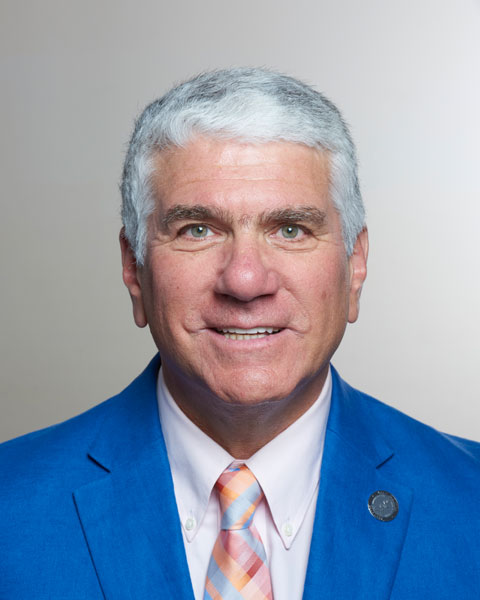
Edwin A. Salsitz
MD, DFASAM
Dr. Edwin A. Salsitz has been an attending physician in the Mount Sinai Beth Israel , Division of Chemical Dependency, New York City, since 1983, and is an Assistant Professor of Psychiatry at the Mount Sinai School of Medicine. He is the principal investigator of the Methadone Medical Maintenance (office-based methadone maintenance) research project.
Dr. Salsitz is certified by the American Board of Addiction Medicine (ABAM), as well as by the Board of Internal Medicine and Pulmonary Disease. He has published and lectures frequently on addiction medicine topics.Dr. Salsitz is a course director for ASAM sponsored buprenorphine trainings,and is a mentor in the PCSS-MAT mentoring program. He has co-chaired the ASAM Review Course, the ASAM Common Threads Course, the ASAM State of the Art course and is a reviewer for the Journal of Addiction Medicine and Drug and Alcohol Dependence. He is the chair of the ASAM REMS course on safe and effective prescribing of opioids.
Dr. Salsitz was the Co-chair of the ASAM CME committee and Chair of the New York Society of Addiction Medicine CME and Education committee. Dr. Salsitz is a member of the medical advisory panel, for the New York State Office of Alcohol and Substance Abuse Services. Dr. Salsitz is the recipient of the 2014 ASAM Annual Award, and the 2018 ASAM Annual Educator of the Year Award.
CME Information and Disclosure Listing
The American Society of Addiction Medicine (ASAM) is accredited by the Accreditation Council for Continuing Medical Education (ACCME) to sponsor continuing medical education for physicians. ASAM has been awarded the highest level of Accreditation with Commendation by the ACCME as a provider of continuing medical education.
The American Society of Addiction Medicine designates this live activity for a maximum of 2.5 AMA PRA Category 1 Credits™. Physicians should claim only the credit commensurate with the extent of their participation in the activity.
In accordance with the disclosure policies of the American Society of Addiction Medicine (ASAM) and the Accreditation Council for Continuing Medical Education (ACCME), the effort is made to ensure balance, independence, objectivity, and scientific rigor in all educational activities. These policies include resolving all conflicts of interest between the Medical Education Council, the CME Committee, program planning committees and faculty, and commercial interests that might otherwise compromise the goal and educational integrity of the activity. All program planning committee members and faculty participating in the activity have disclosed all relevant financial relationships with commercial interests. The ASAM CME Committee has reviewed these disclosures and determined that the program planning committee and faculty relationships are not inappropriate in the context of their respective presentations and are not inconsistent with the educational goals and integrity of the activity.
ASAM CME Committee
Name
Nature of Relevant Financial Relationship
Commercial Interest
What was received?
For what role?
Catherine R. Friedman, MD, FAPA, DFASAM, Chair
None
R. Jeffrey Goldsmith, MD, DLFAPA, DFASAM
None
Adam J. Gordon, MD, MPH, FACP, DFASAM, CMRO
None
Zwaantje Hamming, FNP-C, CARN-AP
None
Noel Ilogu, MD, MRCP, DFASAM
None
Hebert L. Malinoff, MD, FACP, DFASAM
None
Edwin A. Salsitz, MD, DFASAM
None
ASAM Staff and Consultants:
Arlene C. Deverman, MA, CAE, CFRE
None
Marcia Jackson PhD
None
Sandy Metcalfe
None
Program Planning Committee
Faculty
Name
Nature of Relevant Financial Relationship
Commercial Interest
What was received?
For what role?
Herbert Malinoff, MD, FACP, DFASAM
None
Yngvild Olsen, MD, MPH
None
Theodore Parran, MD, FACP
None
Edwin Salsitz, MD, DFASAM
None
R. Corey Waller, MD, MS, FACEP
None
Name
Nature of Relevant Financial Relationship
Commercial Interest
What was received?
For what role?
Edwin A. Salsitz, MD, DFASAM
None
ASAM CME Committee Reviewers
ASAM Medical Education CouncilName
Nature of Relevant Financial Relationship
Commercial Interest
What was received?
For what role?
Jacob Bobrowski, MD, FAAFP
None
Anthony H. Dekker, DO, DFASAM
None
Name
Nature of Relevant Financial Relationship
Commercial Interest
What was received?
For what role?
Peter Selby, MBBS, CCFP, FCFP, MHSc, DipABAM, DFASAM, Chair
Pfizer
Johnson & Johnson
Pfizer Canada
Grant funding
Consulting Fees
Consulting Fees
Principal Investigator
Consulting
Consulting
Daniel Alford, MD, MPH
None
Michael Fingerhood, MD, FACP, FASAM
None
Catherine R. Friedman, MD, FAPA, DFASAM
None
Adam J. Gordon, MD, MPH, FACP, DFASAM, CMRO
None
Miriam S. Komaromy, MD, FACP, DFASAM
None
Edwin A. Salsitz, MD, DFASAM
None
Mark P. Schwartz, MD, DFASAM
None
Mark A. Weiner, MD, FASAM
None
ASAM Staff and Consultants:
Arlene C. Deverman, MA, CAE, CFRE
None
Marcia Jackson PhD
None
Jennifer L. Butchart
None
Penny S. Mills, MBA
None

ACCME Accreditation Statement
The American Society of Addiction Medicine is accredited by the Accreditation Council for Continuing Medical Education (ACCME) to provide continuing medical education for physicians.
AMA Credit Designation Statement
The American Society of Addiction Medicine designates this enduring material for a maximum of 2.5 AMA PRA Category 1 Credit(s)™. Physicians should claim only the credit commensurate with the extent of their participation in the activity.
ABPM Maintenance of Certification (MOC)
The American Board of Preventive Medicine (ABPM) has approved this activity for a maximum of 2.5 LLSA credits towards ABPM MOC Part II requirements.
ABAM Transitional Maintenance of Certification (tMOC)
This course has been approved by the American Board of Addiction Medicine (ABAM). Physicians enrolled in the ABAM Transitional Maintenance of Certification Program (tMOC) can apply a maximum of 2.5 AMA PRA Category 1 Credit(s)™ for completing this course.
Acknowledgement
Presented by ASAM, a member of the Collaborative on REMS Education (CO*RE), 10 interdisciplinary organizations working together to improve pain management and prevent adverse outcomes.
RPC Commercial Support Disclosure Statement
This educational activity is supported by an independent educational grant from the ER/LA Opioid Analgesic REMS Program Companies. Please see this link for a listing of the member companies. This activity is intended to be fully compliant with the ER/LA Opioid Analgesic REMS education requirements issued by the US Food & Drug Administration.
This course is not intended to advocate for the use of ER/LA Opioids, but to ensure proper education about safe prescribing practices should a medical provider determine that ER/LA Opioids are the best course of treatment.
-
Register
- Non-Member - Free!
- Regular Member - Free!
- Retired - Free!
- Early Career Physician - Free!
- Resident - Free!
- Student - Free!
- Associate - Free!
- ASAM Staff - Free!
- International Member - Free!
- Emeritus Member - Free!
- Provisional Member - Free!
- Fellow Member - Free!
- Honorary Member - Free!
- CRT Member - Free!
- More Information
- Contains 46 Product(s)
The ASAM Fundamentals of Addiction Medicine 40-Hour Program is an innovative educational program empowering primary care and other providers to identify, treat, and/or refer patients at risk for or with addiction. The curriculum is designed for healthcare professionals who received little addiction education during their medical training.
The ASAM Fundamentals of Addiction Medicine 40-Hour Program is an innovative educational program empowering primary care and other providers to identify, treat, and/or refer patients at risk for or with addiction. Participants will learn how to recognize, screen, treat and refer patients with substance use disorders through 40 CME hours of interactive, case-based learning. This program is designed for healthcare professionals who received little addiction education during their medical training including physicians, clinicians, and other healthcare providers in primary care, emergency/urgent care, treatment centers and general psychiatry settings.
Why Participate
- Participants will receive official recognition and certificate for the completion of all 40 CME hours as laid out in the curriculum.
- Help patients that are already in your practice and be a part of the solution to the one of the nation’s deadliest epidemics
- Increase knowledge, skills and confidence for providers who may have received little or no addiction education during their medical training
- Learn how to integrate addiction medicine and payment models into your existing practice
- Connect with a community of colleagues and mentors for additional support with complex patients
- Experience content created specifically for primary care and other providers based on extensive needs-assessment
- Learn core competencies and knowledge needed to identify, treat, and refer patients with addiction to specialists when needed
- Earn a certificate of completion from ASAM upon completion of the 40-Hour CME Program
Curriculum Topics
- Attitudes towards addiction and treating patients with addiction
- Substance use disorders medications
- Neurobiology of addiction
- Screening, brief intervention, and referral to treatment (SBIRT)
- Motivational interviewing
- Medical and Psychiatric Co-morbidities
- Diagnosing substance use disorders
- Developing a treatment plan (including ASAM Criteria)
- Special populations (such as adolescents, pregnant women, etc)
- Referral to specialists
Program Activities
The ASAM Fundamentals of Addiction Medicine 40-Hour CME Program is comprised of five activities. All activities align with the nine identified addiction medicine competencies for primary care providers. ASAM has also gathered a collection of resources and tools reviewed by experts related to various topics of addiction medicine and working with patients at risk for or with substance use disorders (SUD) to supplement participant’s learning.
Registration to the program includes the online version of all activities. Participants may elect to complete activities in a live, in-person format when available to fulfill program requirements. Additional fees may apply for live-in-person events. Registration fees for the full-price, 8-hour live workshop will be credited towards the overall price of the ASAM Fundamentals of Addiction Medicine 40-Hour Program for new participants.
Activity CME Hours The ASAM Fundamentals of Addiction Medicine Workshop
Participants are recommended to take this component first in order to get the most out of the 40-Hour Program.
A practical, self-paced, case-based workshop in which participants will learn more about recognizing, screening, diagnosing and treating patients with addiction with an emphasis on alcohol, opioids, and tobacco. This online offering is based on the 8-hour, live workshop and designed for participants unable to attend the live activity.
Participants may also elect to take the 8-hour live, in-person version of the workshop to fulfill this requirement. Additional registration fees may apply for live events. Registration fees for the live workshop will be credited towards the overall price of the ASAM Fundamentals of Addiction Medicine 40-Hour Program for new participants.
5
(8 hours for those who complete a live workshop)The ASAM Treatment of Opioid Use Disorder Course Includes Waiver Qualifying Requirements
Covers the medication treatments for Opioid Use Disorder and the requirements needed to obtain the waiver to prescribe buprenorphine under the Drug Abuse Treatment Act of 2000 (DATA 2000) and Comprehensive Addiction and Recovery Act (CARA). This course fulfills 8 of the 24 hours required for NPs and PAs under CARA.8 The CO*RE/ASAM Pain Management and Opioids: Balancing Risks and Benefits Course
This course reviews safe prescribing habits and examines the difference between extended-release and long-acting and short-acting opioid medications. The course will also include information from the CDC guidelines and includes information provided by the FDA blueprint for Risk Evaluation and Mitigation Strategy (REMS) education. Participants of the 40-hour program may attend a live course, live webinar or fulfill the requirement online. (Please note until August 2018 the course will appear under its previous title "CO*RE/ASAM Opioid Prescribing: Safe Practice, Changing Lives")2.5 Fundamentals of Addiction Medicine ECHO (FAME) Sessions (in collaboration with Project ECHO – University of New Mexico)
The ECHO video conference model is used to connect participants with a panel of addiction and multidisciplinary experts. Sessions are two hours, and include a 20 - 30 minute addiction didactic presentation and lively discussions on case presentations submitted by participants. Participants must attend at least 4 (four) teleECHO sessions and present one case to fulfill this activity requirement.8 Elective Topics
Participants select from over 80 hours of CME on a broad range of topics, especially created to meet the needs of primary care physicians and clinicians. Participants may choose from the approved modules and topics based on their needs and the needs of their patients. Completion of additional FAME TeleECHO sessions beyond the required four are also eligible to fulfill this component. Elective topic hours are determined by the number of workshop hours completed.
Only activities approved for the "Elective Topics" activity will be accepted to fulfill this requirement.16.5
(13.5 for those who complete a live workshop)TOTAL 40 Program Competencies
The ASAM Fundamentals of Addiction Medicine 40-Hour Program seeks to help learners achieve nine identified competencies in the addiction medicine field.
- Interact with patients and professional colleagues so as to display professionalism in all activities, by demonstrating commitment to the health and well-being of individuals and society through ethical practice, profession-led regulation, and high personal standards of behavior.
- Identify their feelings and attitudes that promote or prevent therapeutic responses to their patients with substance use disorders.
- Understand the addictive disorders as developmental biopsychosocial disorders.
- Take an evidence-based approach to detecting substance use disorders.
- Respond to positive substance use screening results with brief counseling strategies, appropriate to the patient’s readiness to change.
- Use motivational interviewing with patients ambivalent about changing their substance use behavior.
- Conduct a biopsychosocial and developmental ambulatory assessment of an adult with a suspected SUD to match the patient to an appropriate level of care.
- List the indications, contraindications and duration of treatment of evidence based pharmacotherapy for alcohol, tobacco, and opioid use disorders and refer patient to specialty care where appropriate.
- Reflect on the role of behavioral interventions for patients and families including formal intensive ambulatory and inpatient treatment and informal programs such as mutual aid groups in the recovery process for patients in their practice/ communities.
The 40 hour CME curriculum is structured around these nine competencies, of which each competency has several learning objectives. Activities in the curriculum will align with at least one of the learning objectives.
If you experience any difficulties, please feel free to call the ASAM office at 301-656-3920 or email education@asam.org .
Note: This program is for providers who are seeking additional knowledge about addiction medicine. This is not a certification or designed to prepare providers for certification exams. Providers interested in becoming an ABMS certified Addiction Specialist should go to www.abpm.org and/or learn about Addiction Fellowship programs at https://www.addictionmedicinefoundation.org/.
Why Participate?
Participants are saying....
- “This is probably the best post-graduate training I've ever done…The webinar format was engaging and educational. I greatly appreciate the opportunity to have involved at that level.” – MD, Massachusetts
- “Appreciate your effort to organize the training. It was a great experience. I'd definitely recommend this to my primary care colleagues.” – MD, Maryland
- “…living in the Northeast, I’m afraid I get very provincial so it’s been really interesting to hear everybody…but it’s the across the country responses that have been so helpful.” – MD, Massachusetts
- “Living in Alaska, the resources for substance abuse treatment is probably not as diversified as in other areas…so this clinic has been valuable to me… providing the information and talking, collaborating with other professions in the field to help provide the best care of the patients.” – NP, Alaska
Extensive Development from Experts....
The ASAM Fundamentals 40-Hour Program was developed over multiple years, beginning in 2013. ASAM’s committee of experts created, evaluated, and revised the Fundamentals program continuously to ensure providers received the highest quality, most up-to-date education.
Competency-Based Program Activities...
The ASAM Fundamentals of Addiction Medicine 40-Hour Program is comprised of five components. All components and activities align with the nine identified addiction medicine competencies for primary care providers. ASAM has also gathered a collection of resources and tools reviewed by experts related to various topics of addiction medicine and working with patients at risk for or with substance use disorders (SUD) to supplement participant’s learning.
Positive Outcomes for Participants' Practice...
Some of the most commonly reported changes as a result of the ASAM Fundamentals 40-Hour Program were:
- Change in patient treatment plans
- Change in approach to patients with SUDs
- More frequent screening, e.g. screening all patients at least annually.
- More use of screening tools or use of different screening tools.
- More or better use of SBIRT
- More or better use of MI techniques
- Increased confidence in treating patients with addiction

ASAM Fundamentals of Addiction Medicine Workshop Planning Committee
Name
Disclosure
Miriam S. Komaromy, MD, FACP, FASAM (Co- Chair)
No Financial Relationships or Conflicts of Interest
Peter L. Selby MBBS, CCFP, FCFP, MHSc, DFASAM, (Immediate Past Chair)
Johnson and johnson: Consultant/Advisory Board, Other Research Support includes receipt of drugs, supplies, equipment or other in-kind support;Pfizer: Consultant/Advisory Board, Other Research Support includes receipt of drugs, supplies, equipment
Zwaantje H. Hamming, FNP-C, CARN-AP
No Financial Relationships or Conflicts of Interest
Marcia Jackson, PhD
No Financial Relationships or Conflicts of Interest
Jill Mattingly, DHSc, MMSc, PA-C
No Financial Relationships or Conflicts of Interest
Kenneth A. Saffier, MD, FASAM
No Financial Relationships or Conflicts of Interest
Mario F. San Bartolomé, MD, MBA, MRO, QME, FASAM
No Financial Relationships or Conflicts of Interest
J. Paul Seale, MD, FASAM
No Financial Relationships or Conflicts of Interest
Jeanette M. Tetrault, MD, FACP, FASAM
No Financial Relationships or Conflicts of Interest
Alexander Walley, MD, MSc, FASAM
No Financial Relationships or Conflicts of Interest
ASAM CME Committee
Name
Disclosure
Catherine Friedman, MD (Chair)
No Financial Relationships or Conflicts of Interest
R. Jeffrey Goldsmith, MD, DLFAPA, DFASAM
No Financial Relationships or Conflicts of Interest
Adam J. Gordon, MD, MPH, FACP, DFASAM, CMRO No Financial Relationships or Conflicts of Interest Zwaantje H. Hamming, FNP-C, CARN-AP No Financial Relationships or Conflicts of Interest Noel Ilogu, MD, MRCP, DFASAM No Financial Relationships or Conflicts of Interest Herbert L. Malinoff, MD, FACP, DFASAM
No Financial Relationships or Conflicts of Interest
Edwin A. Salsitz, MD, DFASAM
No Financial Relationships or Conflicts of Interest
Commercial Interest Definition
A commercial interest is any entity producing, marketing, re-selling or distributing health care goods or services consumed by, or used on, patients. The ACCME does not consider providers of clinical service directly to patients to be commercial interests.

Agency Support
ASAM thanks the Agency for Healthcare Research and Quality, an agency of the U.S. Department of Health and Human Services, for their support of the current Fundamentals of Addiction Medicine ECHO (FAME) series through grant number R18HS025067.
Disclosure of Commercial Support
The American Society of Addiction gratefully acknowledges the support of the following companies in the development of The ASAM Fundamentals of Addiction Medicine Program.
Indivior provided an unrestricted educational grant to assist with the development, implementation and evaluation of this Fundamentals Program.

Accreditation Council for Continuing Medical Education (ACCME)
The American Society of Addiction Medicine has been awarded the highest level of Accreditation with Commendation by the Accreditation Council for Continuing Medical Education (ACCME) as a provider of continuing medical education (CME) for physicians. Accreditation in the ACCME System seeks to assure the medical community and the public that ASAM delivers education that is relevant to clinicians’ needs, evidence-based, evaluated for its effectiveness, and independent of commercial influence.
The ACCME System employs a rigorous process for evaluating institutions' CME programs according to standards that reflect the values of the educator community and aim to accelerate learning, inspire change, and champion improvement in healthcare. Through participation in accredited CME, clinicians and teams drive improvement in their practice and optimize the care, health, and wellness of their patients.
Please see individual sessions for accreditation information for specific offerings.
-
Register
- Non-Member - $895
- Regular Member - $695
- Retired - $695
- Early Career Physician - $695
- Resident - $695
- Student - $495
- Associate - $495
- ASAM Staff - Free!
- International Member - $695
- Emeritus Member - $695
- Provisional Member - $695
- Honorary Member - $695
- CRT Member - $695
- More Information
- Contains 5 Component(s), Includes Credits
Component Credit Type State/Medical Type Available Credits Earned Credits Credit Medical Physician - Online 2.50 0.00 Credit Medical Non-Physician - Online 2.50 0.00 Review prescribing habits and examine the difference between extended release/long acting medications to help ensure patient safety and effective pain management.

The misuse of extended-release and long-acting (ER/LA) opioids is a major public health problem. Centers for Disease Control and Prevention reported the following:
- From 2000 to 2015 more than half a million people died from drug overdoses.
- 91 Americans die every day from an opioid overdose.
The CO*RE/ASAM Pain Management and Opioids: Balancing Risks and Benefits addresses the opioid public health crisis. This comprehensive course was developed by renowned experts from Collaborative for REMS Education (CO*RE) and incorporates all six units outlined in FDA blueprint for safe opioid prescribing. The updated course also provides necessary context for safe opioid prescribing by discussing biopsychosocial aspects of pain, the newest clinical guidelines on the treatment of chronic pain, and state policies about prescribing opioids.
Learners will be able to:
- Accurately assess patients with pain for consideration of an opioid trial
- Establish realistic goals for pain management and restoration of function
- Initiate opioid treatment (IR and ER/LA) safely and judiciously, maximizing efficacy while minimizing risks
- Monitor and re-evaluate treatment continuously; discontinue safely when appropriate
- Counsel patients and caregivers about use, misuse, abuse, diversion, and overdose
- Educate patients about safe storage and disposal of opioids
- Demonstrate working knowledge and ability to access general and specific information about opioids, especially those used in your practice.
CME Information and Disclosure Listing
The American Society of Addiction Medicine (ASAM) is accredited by the Accreditation Council for Continuing Medical Education (ACCME) to sponsor continuing medical education for physicians. ASAM has been awarded the highest level of Accreditation with Commendation by the ACCME as a provider of continuing medical education.
The American Society of Addiction Medicine designates this live activity for a maximum of 2.5 AMA PRA Category 1 Credits™. Physicians should claim only the credit commensurate with the extent of their participation in the activity.
In accordance with the disclosure policies of the American Society of Addiction Medicine (ASAM) and the Accreditation Council for Continuing Medical Education (ACCME), the effort is made to ensure balance, independence, objectivity, and scientific rigor in all educational activities. These policies include resolving all conflicts of interest between the Medical Education Council, the CME Committee, program planning committees and faculty, and commercial interests that might otherwise compromise the goal and educational integrity of the activity. All program planning committee members and faculty participating in the activity have disclosed all relevant financial relationships with commercial interests. The ASAM CME Committee has reviewed these disclosures and determined that the program planning committee and faculty relationships are not inappropriate in the context of their respective presentations and are not inconsistent with the educational goals and integrity of the activity.
ASAM CME Committee
Name
Nature of Relevant Financial Relationship
Commercial Interest
What was received?
For what role?
Catherine R. Friedman, MD, FAPA, DFASAM, Chair
None
R. Jeffrey Goldsmith, MD, DLFAPA, DFASAM
None
Adam J. Gordon, MD, MPH, FACP, DFASAM, CMRO
None
Zwaantje Hamming, FNP-C, CARN-AP
None
Noel Ilogu, MD, MRCP, DFASAM
None
Hebert L. Malinoff, MD, FACP, DFASAM
None
Edwin A. Salsitz, MD, DFASAM
None
ASAM Staff and Consultants:
Arlene C. Deverman, MA, CAE, CFRE
None
Marcia Jackson PhD
None
Sandy Metcalfe
None
Program Planning Committee
Name
Nature of Relevant Financial Relationship
Commercial Interest
What was received?
For what role?
Herbert Malinoff, MD, FACP, DFASAM
None
Yngvild Olsen, MD, MPH
None
Theodore Parran, MD, FACP
None
Edwin Salsitz, MD, DFASAM
None
R. Corey Waller, MD, MS, FACEP
None
Faculty
Name
Nature of Relevant Financial Relationship
Commercial Interest
What was received?
For what role?
Edwin A. Salsitz, MD, DFASAM
None
ASAM CME Committee Reviewers
Name
Nature of Relevant Financial Relationship
Commercial Interest
What was received?
For what role?
Jacob Bobrowski, MD, FAAFP
None
Anthony H. Dekker, DO, DFASAM
None
ASAM Medical Education Council
Name
Nature of Relevant Financial Relationship
Commercial Interest
What was received?
For what role?
Peter Selby, MBBS, CCFP, FCFP, MHSc, DipABAM, DFASAM, Chair
Pfizer
Johnson & Johnson
Pfizer Canada
Grant funding
Consulting Fees
Consulting Fees
Principal Investigator
Consulting
Consulting
Daniel Alford, MD, MPH
None
Michael Fingerhood, MD, FACP, FASAM
None
Catherine R. Friedman, MD, FAPA, DFASAM
None
Adam J. Gordon, MD, MPH, FACP, DFASAM, CMRO
None
Miriam S. Komaromy, MD, FACP, DFASAM
None
Edwin A. Salsitz, MD, DFASAM
None
Mark P. Schwartz, MD, DFASAM
None
Mark A. Weiner, MD, FASAM
None
ASAM Staff and Consultants:
Arlene C. Deverman, MA, CAE, CFRE
None
Marcia Jackson PhD
None
Jennifer L. Butchart
None
Penny S. Mills, MBA
None
Acknowledgement
Presented by ASAM, a member of the Collaborative on REMS Education (CO*RE), 10 interdisciplinary organizations working together to improve pain management and prevent adverse outcomes.
RPC Commercial Support Disclosure Statement
This educational activity is supported by an independent educational grant from the ER/LA Opioid Analgesic REMS Program Companies. Please see this link for a listing of the member companies. This activity is intended to be fully compliant with the ER/LA Opioid Analgesic REMS education requirements issued by the US Food & Drug Administration.
This course is not intended to advocate for the use of ER/LA Opioids, but to ensure proper education about safe prescribing practices should a medical provider determine that ER/LA Opioids are the best course of treatment.
-
Register
- Non-Member - Free!
- Regular Member - Free!
- Retired - Free!
- Early Career Physician - Free!
- Resident - Free!
- Student - Free!
- Associate - Free!
- ASAM Staff - Free!
- International Member - Free!
- Emeritus Member - Free!
- Provisional Member - Free!
- Fellow Member - Free!
- Honorary Member - Free!
- CRT Member - Free!
- More Information
- Contains 4 Component(s), Includes Credits
Component Credit Type State/Medical Type Available Credits Earned Credits CME Certificate Medical Physician - Online 1.00 0.00 CME Certificate Medical Non-physician - Online 1.00 0.00 This webinar helps build knowledge of The ASAM Appropriate Use of Drug Testing in Clinical Addiction Medicine document, which guides provider decisions about drug testing, as no universal standard exists today.

This webinar helps build knowledge of The ASAM Appropriate Use of Drug Testing in Clinical Addiction Medicine document, which guides provider decisions about drug testing, as no universal standard exists today. It will allow providers, patients and their families, healthcare administrators, and payers determine clearly what is appropriate practice and what is considered outside the realm of appropriate practice in regard to drug testing in clinical addiction medicine. This webinar is primarily intended for addiction specialists and all providers utilizing drug testing in the context of the identification, diagnosis, treatment, and monitoring of patients with, or at risk for, addiction. It will also be useful for physicians and other providers concerned about the possibility of addiction in their patient population.

Louis E. Baxter, Sr.
MD, DFASAM
Dr. Louis E. Baxter, Sr., MD, DFASAM is a Past ASAM President and is the President &CEO of thr Professional Assistance Program of New Jersey, Inc.
Dr. Baxter is a certified in Addiction Medicine by the American Board of Addiction Medicine and formerly served on the Board of Directors. Dr. Baxter has served and chaired many government advisory committees and panels which include SAMHSA, NIDA, CSAT, NIAAA, and a Presidential Advisor through ONDCP since the Clinton Administration.
Dr. Baxter has served the State of New Jersey in various capacities serving on the Governor's Council for Drug and Alcohol Addiction, Medical Director for the Division of Addiction Services, and most recently as the Addiction Medicine Consultant for the Division of Mental Health and Addiction Services. He has held academic appointments as Assistant Clinical Professor of Medicine for former University Medicine & Dentistry and now currently with Rutgers New Jersey Medical School in Newark, NJ. Dr. Baxter is serving as Co-Director if the Addiction Medicine Fellowship Program at Howard University Medical School and Hospital.
Upon completion of this activity, participants should be able to:
-Recognize the importance of the guidance needed around drug testing today
-Identify the fundamental components of drug testing in a clinical setting
-Summarize the document's recommendations and discuss how they should be used in practice
-Address common clinical questions around drug testing in a clinical setting-
Register
- Regular Member - Free!
- Retired - Free!
- Early Career Physician - Free!
- Resident - Free!
- Student - Free!
- Associate - Free!
- ASAM Staff - Free!
- Non-Member - Free!
- International Member - Free!
- Emeritus Member - Free!
- Provisional Member - Free!
- Fellow Member - Free!
- Honorary Member - Free!
- CRT Member - Free!
- More Information
-
Register
- Contains 30 Component(s), Includes Credits
Component Credit Type State/Medical Type Available Credits Earned Credits Certificate - Recorded Course Medical Physician 8.00 0.00 Certificate - Recorded Course Medical Non-physician 8.00 0.00 The ASAM Treatment of Opioid Use Disorder Course will ensure that participants are exposed to the highest quality, evidence-based practices when using buprenorphine to treat opioid use disorders.

Welcome to The ASAM Treatment of Opioid Use Disorder Course. This course provides the 8 hours of education needed to receive a waiver to prescribe buprenorphine in an office-based setting. More information on waiver requirements can be found on the SAMHSA website.
To begin the online portion of the course, please log in to your right and locate the box that says Module 1. If you do not know your password, or you have forgotten it, select "Forgot Password" and you will be emailed a link to reset your password.
This 8-hour online course combines modules from our blended course and Video On-Demand captured on October 5, 2016 in Washington, DC.
All online modules and quizzes must be completed before moving on to Video On-Demand. Detailed instructions for completing the online portion of the course can be found under the tab titled "Course Instructions."
After completing the online modules, Videos On-Demand, corresponding quizzes, and applicable evaluations, return here to claim CME for the course. If you have any questions, please contact education@ASAM.org.
Note: Resident & Fellow ASAM Members (in training) receive complimentary access to the 8-hour online ASAM Treatment of Opioid Use Disorder Course. Click here to become a member. Please note membership approval requires up to two business days.
Overview of Legislation
Physicians
The Drug Abuse Treatment Act of 2000 (DATA 2000) specifies training is necessary for physicians to obtain a waiver to engage in office‐based treatment of opioid use disorders using drugs approved by the FDA on Schedules III, IV, and V. This course addresses those requirements using a curriculum approved by CSAT/SAMHSA and ASAM, who is one of the national organizations named in the DATA 2000 legislation as eligible to prepare and administer these courses.
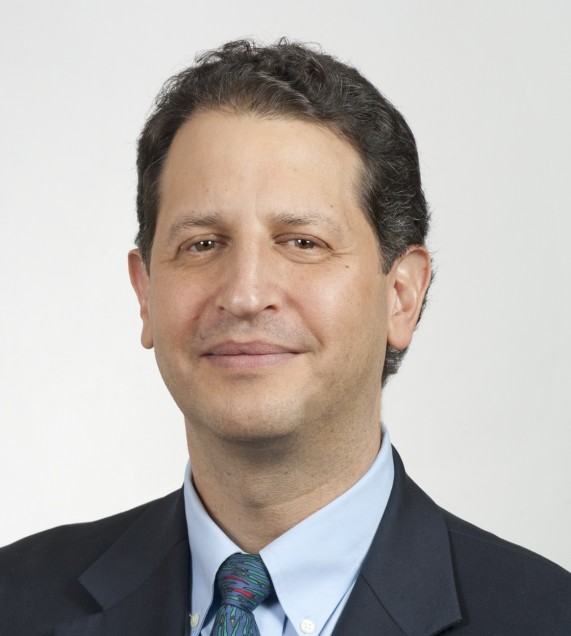
Daniel P. Alford
MD, MPH, FACP, DFASAM
Dr. Daniel P. Alford is an Associate Professor of Medicine, Assistant Dean of CME and Director of the Safe and Competent Opioid Prescribing Education (SCOPE of Pain) program at Boston University School of Medicine. He is a diplomate in Addiction Medicine by the American Board of Addiction Medicine (ABAM).
He is director of the Clinical Addiction Research and Education Unit medical director of the Office-Based Opioid Treatment (OBOT) program and of the Massachusetts Screening, Brief Intervention, Referral to Treatment Training and Technical Assistance (MASBIRT TTA) program and former program director for the Addiction Medicine Fellowship program at Boston Medical Center (BMC). Since 2001 he has served as the course director of the Chief Resident Immersion Training (CRIT) Program in Addiction Medicine: Improving Clinical and Teaching Skills for Generalists funded by NIDA. He is president of the Association for Medical Education and Research in Substance Abuse (AMERSA). In 2011, he was recognized as a Champion of Change by the White House. In 2014 he received the Health Education Award from the American Medical Association.

Edwin A. Salsitz
MD, DFASAM
Dr. Edwin A. Salsitz has been an attending physician in the Mount Sinai Beth Israel , Division of Chemical Dependency, New York City, since 1983, and is an Assistant Professor of Psychiatry at the Mount Sinai School of Medicine. He is the principal investigator of the Methadone Medical Maintenance (office-based methadone maintenance) research project.
Dr. Salsitz is certified by the American Board of Addiction Medicine (ABAM), as well as by the Board of Internal Medicine and Pulmonary Disease. He has published and lectures frequently on addiction medicine topics.Dr. Salsitz is a course director for ASAM sponsored buprenorphine trainings,and is a mentor in the PCSS-MAT mentoring program. He has co-chaired the ASAM Review Course, the ASAM Common Threads Course, the ASAM State of the Art course and is a reviewer for the Journal of Addiction Medicine and Drug and Alcohol Dependence. He is the chair of the ASAM REMS course on safe and effective prescribing of opioids.
Dr. Salsitz was the Co-chair of the ASAM CME committee and Chair of the New York Society of Addiction Medicine CME and Education committee. Dr. Salsitz is a member of the medical advisory panel, for the New York State Office of Alcohol and Substance Abuse Services. Dr. Salsitz is the recipient of the 2014 ASAM Annual Award, and the 2018 ASAM Annual Educator of the Year Award.

Sarah Bagley
MD
Sarah Bagley, MD, is an attending in the Departments of Medicine and Pediatrics at Boston Medical Center. Sarah completed a Combined Residency in Internal Medicine and Pediatrics at Brown and then an Addiction Medicine Fellowship at Boston University. Her clinical and research interest are related to the impact of substance use on families and in the treatment of adolescents with substance use disorders.
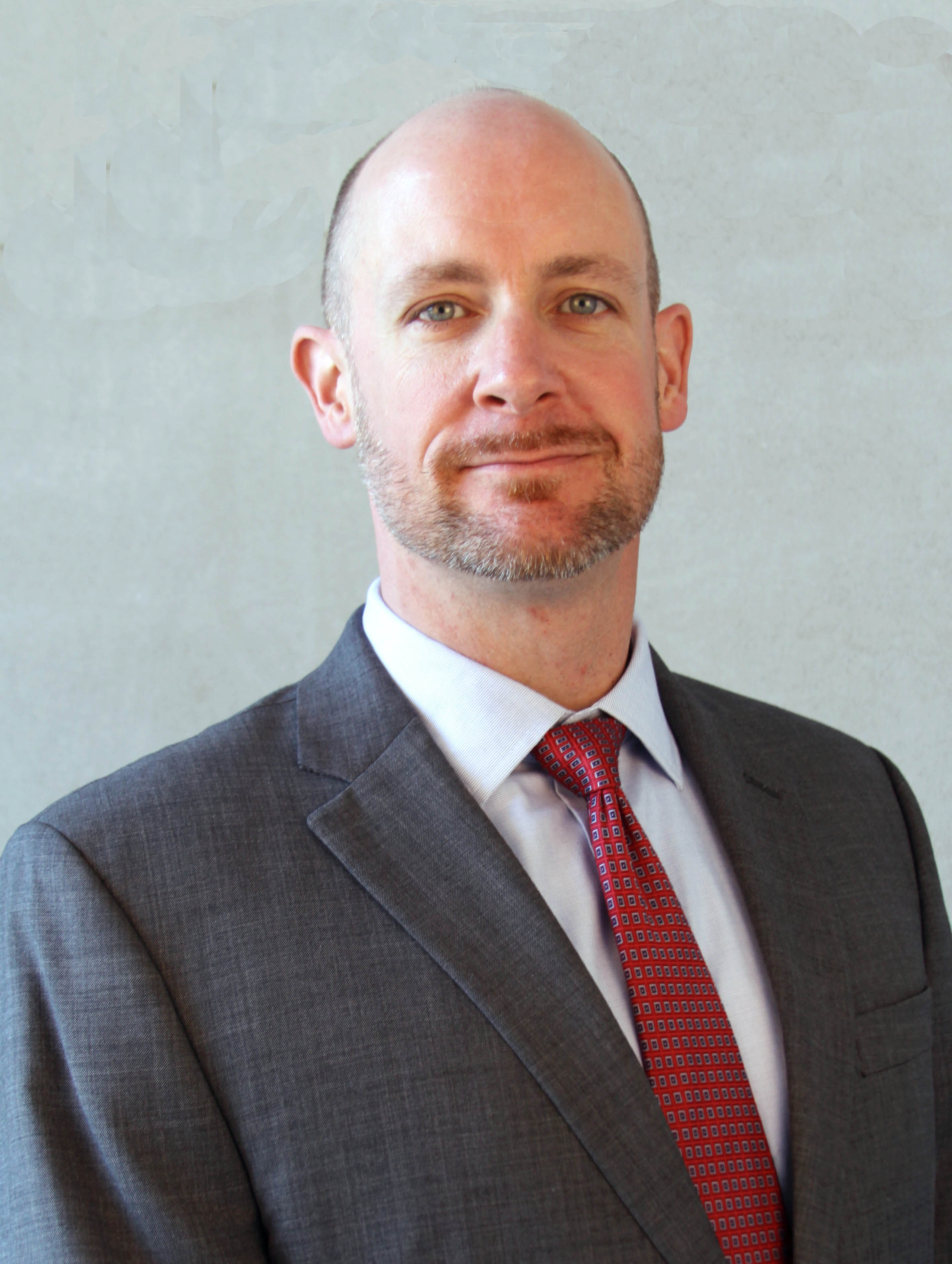
Jeffrey Baxter
MD
Jeff Baxter, MD, is an Associate Professor of Family Medicine and Community Health at the University of Massachusetts Medical School. Dr. Baxter completed a fellowship in Addiction Medicine at the Boston VA Medical Center, and is board certified in Family Medicine and Addiction Medicine. He currently serves as the Chief Medical Officer for Spectrum Health Systems Addiction Treatment Services, overseeing inpatient, outpatient and residential divisions.
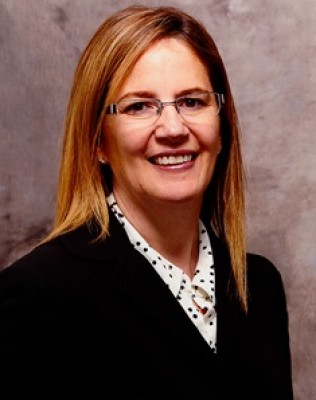
Colleen LaBelle
BSN, RN-BC, CARN
Colleen LaBelle has certifications in addiction nursing and HIV with over 20 years of clinical experience in HIV and addiction, and co-authored a publication in the Journal of General Internal Medicine, “Treating Homeless Opioid Dependent Patients with Buprenorphine in an Office-based Setting." She was instrumental in the start up of the OBOT Program in the BMC Primary Care Clinic, which manages over 450 active patients with buprenorphine. This program provides buprenorphine treatment for patients in primary care, homeless, HIV, Family Medicine, OB, and support to the affiliated community health centers. She is the program director of the STATE OBOT B (State Technical Assistance, Treatment Expansion of Buprenorphine) working with 14 community health centers implementing a nurse care manager model for the expansion of buprenorphine. Since 2003, Ms. LaBelle has served as Faculty for the buprenorphine certification course of the American Society of Addiction Medicine. She frequently gives presentations on buprenorphine and provides consultation and technical assistance on- and offsite and by telephone. She oversees the MDPH buprenorphine list-serve and provides liaison for MDPH supported buprenorphine training, education and start-up in Massachusetts. She speaks on a local and national level, and has been a part of the SAMHSA Summit on Buprenorphine. Ms. LaBelle has served as a member of the Scientific Study (Study Section) Review Committee for the National Institute on Drug Abuse. Since 2004, she has served on the National Advisory Committee on Buprenorphine for the Health Resources and Services Administration and participated in professional editing of TAP 30 Technical Assistance Publication for Nurses with SAMHSA, 2009. Co-author : Five Year Experience with Collaborative Care of Opioid Addicted Patients using Buprenorphine in Primary Care, published Archives of Internal Medicine. In May 2011 she was the recipient of Individual Leadership Award, for Innovation In Health Care from MA Bureau of Substance Abuse Services as well as a NIATX award recipient 2011 Innovations in Behavioral Health Services award for Process Improvements. She is a board member of the Addiction Nurses Certification Board, and recently started a MA Chapter for addiction nurses.

Sharon Levy
MD, MPH
Sharon Levy, MD, MPH, is a board certified Developmental-Behavioral Pediatrician and an Assistant Professor of Pediatrics at Harvard Medical School; she also has a Master's degree from the Harvard School of Public Health. She is the Director of the Adolescent Substance Abuse Program in the Divi-sion of Developmental Medicine at Boston Children's Hospital where she has evaluated and treated hundreds of adolescents with substance use disorders. She has published extensively on the outpatient management of substance use disorders in adolescents, including screening and brief advice in primary care, the use of drug testing and the outpatient management of opioid de-pendent adolescents. She is the PI of the SAMHSA-funded medical residen-cy SBIRT project at Children's Hospital Boston and an NIAAA-funded study validating the youth alcohol screening tool in a population of youth with chronic medial illness. Dr. Levy currently serves as the chair of the American Academy of Pediatrics Committee on Substance Abuse.
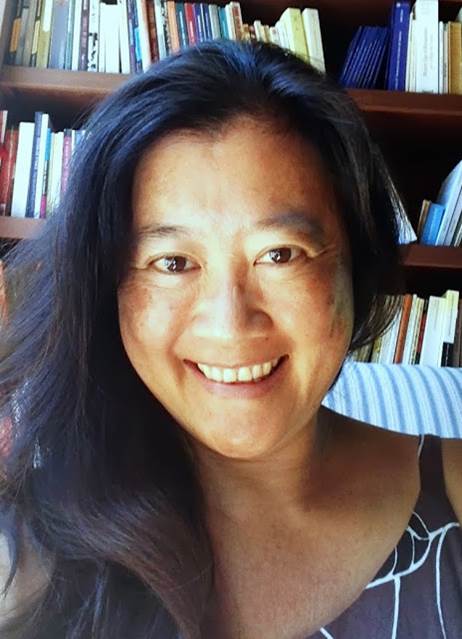
Paula Lum
MD, MPH, FASAM
Dr. Lum is a general internist and primary care physician, and Professor of Medicine in the HIV/AIDS Division in the University of California, San Francisco's Department of Medicine at San Francisco General Hospital. She is certified by the American Boards of Internal Medicine and Addiction Medicine.

Kelley Saia
MD
Kelley Saia, MD, is an attending obstetrician in the Department of Obstetrics and Gynecology at Boston Medical Center and an Assistant Professor of Obstetrics and Gynecology at Boston University School of Medicine.Dr. Saia received her medical degree from the University of Vermont, College of Medicine and completed her residency in obstetrics and gynecology at Boston Medical Center.
In addition to caring for women with general obstetrics and gynecologic issues, she is the director of Project RESPECT, Substance Use Disorder Treatment in pregnancy at Boston Medical Center. Project RESPECT has been caring for pregnant women with substance use disorder for over 30 years and Dr. Saia, established the first obstetric buprenorphine clinic in the greater Boston area in 2006. RESPECT cares for over 125 mother-baby pairs per year with a multidisciplinary team consisting of obstetricians, addiction medicine specialist, pediatrics, psychiatry, social work, lactation consultants and nursing. Dr. Saia is actively engaged in patient care QI, clinical and scientific research, community outreach and medical training.

Andrew Saxon
MD, FASAM
Andrew J. Saxon, M.D. Professor, Department of Psychiatry and Behavioral Sciences, University of Washington Director, Center of Excellence in Substance Abuse Treatment and Education, VA Puget Sound Health Care System Director, Addiction Psychiatry Residency Program, University of Washington Preceding his entry into psychiatry, Dr. Saxon completed an internal medicine internship and worked for 4 years as an emergency room physician. Subsequent to his general psychiatry residency at the University of Washington, Dr. Saxon has more than a quarter century of experience as a clinical and research addiction psychiatrist. Dr. Saxon is board certified with added qualifications in addiction psychiatry by the American Board of Psychiatry and Neurology. Dr. Saxon sits on the editorial boards of the journals, Drug and Alcohol Dependence and General Hospital Psychiatry. Dr. Saxon's current research work is supported by the VA, the Department of Defense, and the National Institute on Drug Abuse and involves pharmacotherapies and psychotherapies for alcohol, cocaine, tobacco, and opioid use disorders as well work in co-occurrence of substance use disorders and posttraumatic stress disorder and on reducing homelessness.

R. Corey Waller (Moderator)
MD, MS, DFASAM
R. Corey Waller, MD, MS, FACEP, DFASAM, is an addiction, pain and emergency medicine specialist. Dr. Waller earned his bachelor's degree in biology and his master's degree in neuromolecular biology at Southwest Texas State University in San Marcos, Texas. He earned his medical degree at University of Texas Medical School in San Antonio. Dr. Waller completed his emergency medicine residency at Thomas Jefferson University in Philadelphia. He is board certified and fellowship trained in addiction medicine.

Alexander Y. Walley
MD, MSc, FASAM
Alexander Y. Walley, M.D., M.Sc., is an Associate Professor of Medicine at Boston University School of Medicine, a general internist and addiction medicine specialist at Boston Medical Center. He is the director of the Addiction Medicine Fellowship program and founded the Inpatient Addiction Consult Service at Boston Medical Center. He does clinical and research-related work on the medical complications of substance use, specifically HIV and overdose. He provides primary care and office-based buprenorphine treatment for HIV patients and methadone maintenance treatment. He is the medical director for the Massachusetts Department of Public Health’s Opioid Overdose Prevention Pilot Program.
Apply
- Fill out the Waiver Notification Form on SAMHSA’s website.
- Submit copies of your training certificate(s) to SAMHSA by email: infobuprenorphine@samhsa.hhs.gov or fax: 301.576.5237.
SAMHSA reviews waiver applications within 45 business days of receipt. If approved, you will receive a letter via email that confirms your waiver and includes your prescribing identification number.
Waiver applications are forwarded to the DEA. DEA regulations require your prescribing identification number to be included on all buprenorphine prescriptions for opioid dependency treatment, along with your regular DEA number.
If you have not received confirmation of receipt of your application, or if it has been more than 45 business days since submitting it, contact CSAT by email: infobuprenorphine@samhsa.hhs.gov or call 866.287.2728.
The ASAM National Practice Guidelines for the Use of Medications in the Treatment of Addiction Involving Opioid Use: Click here to view ASAM's newly released National Practice Guideline.
Prescribers Clinical Support System for Medication Assisted Treatment - A national training and mentoring project developed in response to the prescription opioid misuse epidemic and the availability of newer pharmacotherapies to address opioid dependence.
- Mentoring for those providing care for opioid dependent individuals available at no cost to all interested providers. Click here.
- Clinical Tools (clinical guidances, sample forms including: patient information, intake forms, treatment agreements, induction forms, TIPs and more). Click here.
SAMHSA Buprenorphine website: Click here to access SAMHSA's website for more information on buprenorphine prescribing. For questions on licensure, DEA-X number etc., please call 866-287-2728 or email info@buprenorphine.samhsa.gov.
DATA Physician Locator: Click here for SAMHSA's physician locator.
Waiver Notification Form: Click here for more information from SAMHSA on how to obtain a waiver and download a waiver notification form.
Agency for Healthcare Research and Quality: Click here for more information from the Agency for Healthcare Research and Quality.
National Institute on Drug Abuse: Click here to visit NIDA's website.
NIDA Buprenorphine Suite of Blending Products: Click here to access NIDA's buprenorphine training for multidisciplinary addiction professionals.
Drug Enforcement Administration: Click here to visit the DEA's website.
A Guide for Law Enforcement on Buprenorphine: Click here to read an article from Huffington Post on Methadone and Buprenorphine.
Handbook of Office-Based Buprenorphine Treatment of Opioid Dependence: Click here for a book by John A. Renner, Jr. and Petros Levounis on treating those with opioid dependence.
How To Fill Out Your NOI Form: Click here for a step-by-step video guide on how to fill out your NOI form. Provided by the American Academy of Addiction Psychiatry.
- Locate the box on the right that says “Module 1" and click “View Web Content On-Demand"
- Locate the box on the right that says “Certificate code" and enter the code given upon completion of Module 1 Part 1
- Continue to Module 1 Part 2 and Module 1 Part 3
- Once you have completed the entire module, locate the box called “Module 1 Quiz" and choose “Take Quiz"
- After you have completed Module 1 Quiz, continue to modules 2 and 3
- View the videos On-Demand and complete the associated quizzes
- You will be required to pass all 7 quizzes with a grade of 70% or higher
- When you complete all modules, quizzes, and evaluation you will be able to claim CME Credit through the ASAM e-Learning Center
CME Information and Disclosure Listing
Date of Release: January 15, 2017
Approved Through: December 31, 2018ACCME Accreditation Statement
The American Society of Addiction Medicine is accredited by the Accreditation Council for Continuing Medical Education (ACCME) to provide continuing medical education for physicians.
AMA Credit Designation Statement
The American Society of Addiction Medicine designates this enduring material for a maximum of 8 AMA PRA Category 1 Credits™. Physicians should claim only credit commensurate with the extent of their participation in the activity.
The online enduring material will provide the required 8 hours needed to obtain the waiver to prescribe buprenorphine in office-based treatment of opioid use disorders.
This course has been designated as an approved CME Activity by the American Board of Addiction Medicine (ABAM). Physicians enrolled in the ABAM Maintenance of Certification (MOC) Program can apply a maximum of 8AMA PRA Category 1 Credit(s)™ to the CME requirement for Part II: Lifelong Learning and Self-Assessment.
In accordance with the disclosure policies of ASAM and the ACCME, the effort is made to ensure balance, independence, objectivity, and scientific rigor in all educational activities. These policies include resolving all conflicts of interest between the CME Committee, Planning Committee and faculty, and commercial interests that might otherwise compromise the goal and educational integrity of this activity. All CME Committee, Planning Committee and faculty participating in the activity have disclosed all relevant financial relationships with commercial interests. The CME Committee has reviewed these disclosures and determined that the planning committee and faculty relationships are not inappropriate in the content of their respective presentations and are not inconsistent with the educational goals and integrity of the activity.
ASAM CME Committee
Name
Nature of Relevant Financial Relationship
Commercial Interest
What was received?
For what role?
Adam J. Gordon, MD, MPH, FACP, FASAM, Chair
None
Edwin A. Salsitz, MD, FASAM
None
Herbert Malinoff, MD, FACP, FASAM
None
Noel Ilogu, MD, MRCP
None
Abigail Kay, MD
None
John Tanner, DO, FASAM
Reckitt Benckiser
OREXO
BDSI
Honorarium
Honorarium
Honorarium
Speaker
Speaker
Speaker and Consultant
Catherine Friedman, MD
None
ASAM Buprenorphine Program Planning Committee
Name
Nature of Relevant Financial Relationship
Commercial Interest
What was received?
For what role?
Dan Alford, MD, MPH
None
Edwin Salsitz, MD, FASAM
None
Paula J. Lum, MD, MPH
None
ASAM Buprenorphine Course FacultyName
Nature of Relevant Financial Relationship
Commercial Interest
What was received?
For what role?
Edwin Salsitz, MD, FASAM
None
R. Corey Waller,
MD, MS, FACEP, DFASAM
None
Andrew J. Saxon, MD
UpToDate
Royalties
Senior Editor, Drug Use Disorders
Colleen LaBelle, BSN, RN-BC, CARN
None
Dan A. Alford, MD, MPH
None
Jeffrey D. Baxter, MD
None
Kelley Saia, MD
None
Sharon Levy, MD, MPH
None
Paula J. Lum, MD, MPH
None
Sarah Bagley, MD
ASAM Millennium Fellowship Award
Partial Salary Support
Awardee
Alexander Y. Walley, MD, MSc
None
ASAM CME Committee Reviewers
Name
Nature of Relevant Financial Relationship
Commercial Interest
What was received?
For what role?
Adam J. Gordon, MD, MPH, FACP, FASAM
None
At the conclusion of this activity, learners should be able to:
- Apply for a waiver to prescribe buprenorphine to their patients with opioid use disorders
- Identify and assess patients who are appropriate for treatment with medications
- Have specific knowledge concerning the use of medications to manage patients with addiction involving opioid use
- Discuss the psychiatric and medical co-morbidities associated with opioid addiction
- Providers who wish to obtain a waiver to prescribe buprenorphine in office based treatment of opioid use disorders.
- Clinicians and health care team members working with prescribers who prescribe buprenorphine in office based treatment of opioid use disorders.
The ASAM Treatment of Opioid Use Disorder Course has been made available in part by an unrestricted educational grant from Indivior Inc.
When all 8 hours of the course have been completed, CME can be claimed in the e-Learning Center.
-
Register
- Regular Member - $149
- Retired - $149
- Early Career Physician - $149
- Resident - Free!
- Student - $149
- Associate - $149
- ASAM Staff - Free!
- Non-Member - $199
- International Member - $149
- Emeritus Member - $149
- Provisional Member - $149
- Fellow Member - $149
- Honorary Member - $149
- CRT Member - $149
- More Information
- Contains 24 Component(s), Includes Credits
Component Credit Type State/Medical Type Available Credits Earned Credits CME Certificate Medical Physician 8.00 0.00 CME Certificate Medical Non-Physician 8.00 0.00 The ASAM Treatment of Opioid Use Disorder Course: Includes Waiver Qualifying Requirements will ensure that participants are exposed to the highest quality, evidence-based practices when using buprenorphine to treat opioid use disorders.

Friday, September 14, 2018 | 8:30 am - 1:00 pm
University of Colorado
Kettle Creek Room 108
1420 Austin Bluffs Pkwy
Colorado Springs, CO 80918Hosted by IT MATTTRs 2
Online portion: Thursday, September 13, 2018
Welcome to the ASAM Treatment of Opioid Use Disorder Course online access. This course covers all medications and treatments for opioid use disorder, and provides the required education needed to obtain the waiver to prescribe buprenorphine. ASAM is an approved provider by CSAT/SAMHSA of DATA 2000 training.
This is an 8-hour blended course combining 4 hours of online learning followed by 4 hours of live learning. The live portion of the course builds off the content delivered in the online portion. Course faculty are expecting you to come to the live course with the online portion completed.
Getting started: To begin the online portion of the course, please log in to your right and locate the box that says Module 1. If you do not know your password, or you have forgotten it, select Forgot Password and you will be emailed a link to reset your password. Detailed instructions for completing the online portion of the course can be found under the tab titled Course Instructions.
Once you have completed the 4-hour online portion and the 4-hour live portion of the course, return here to claim CME for the course. If you have any questions, please contact education@ASAM.org.
Overview of Legislation
Physicians
The Drug Abuse Treatment Act of 2000 (DATA 2000) specifies training is necessary for physicians to obtain a waiver to engage in office‐based treatment of opioid use disorders using drugs approved by the FDA on Schedules III, IV, and V. This course addresses those requirements using a curriculum approved by CSAT/SAMHSA and ASAM, who is one of the national organizations named in the DATA 2000 legislation as eligible to prepare and administer these courses.
Nurse Practitioners & Physician Assistants
Kentucky state code does not allow physician assistants to prescribe Schedule III Controlled Substances, so they can not become waivered to prescribe buprenorphine for addiction treatment.
On July 22, 2016, President Obama signed the Comprehensive Addiction and Recovery Act (CARA) into law. CARA authorizes qualified NPs and PAs to become waivered to prescribe buprenorphine in office-based settings for patients with Opioid Use Disorder (OUD) for a five-year period expiring in October 2021.
To qualify, NPs and PAs must:
- Be licensed under state law to prescribe schedule III, IV, or V medications for pain
- Complete not less than 24 hours of appropriate education through a qualified provider
- Through other training or experience, demonstrate the ability to treat and manage OUD
- If required by state law, be supervised or work in collaboration with a qualifying physician to prescribe medications for the treatment of OUD
HHS' announcement on November 16, 2016, enables NPs and PAs to immediately begin taking the 24 hours of required training. For the full HHS announcement, click here.
NPs and PAs can begin the training immediately by taking the 8-hour buprenorphine course ASAM currently offers or that other stakeholders offer (see below for more information). The remaining 16 hours will have to be completed with one training provider. ASAM is developing multiple 16-hour training course options and formats, including collaborations with:
- 24-Hour Buprenorphine Curriculum Collaborative with the American Association of Nurse Practitioners (AANP) and the American Academy of Physician Assistants (AAPA)
- Clinical Tools, Inc
- Provider's Clinical Support System for Medication-Assisted Treatment (PCSS-MAT)
CME Information and Disclosure Listing
Date of Release: July 2015
Approved Through: December 2019
The American Society of Addiction Medicine (ASAM) is accredited by the Accreditation Council for Continuing Medical Education (ACCME) to provide continuing medical education for physicians. ASAM has been awarded the highest level of Accreditation with Commendation by the ACCME as a provider of continuing medical education.
The American Society of Addiction Medicine designates this enduring material for a maximum of 4 AMA PRA Category 1 Credits™. Physicians should claim only the credit commensurate with the extent of their participation in the activity.
The American Society of Addiction Medicine designates this live activity for a maximum of 4 AMA PRA Category 1 Credits™. Physicians should claim only the credit commensurate with the extent of their participation in the activity.
In accordance with the disclosure policies of ASAM and the ACCME, the effort is made to ensure balance, independence, objectivity, and scientific rigor in all educational activities. These policies include resolving all conflicts of interest between the CME Committee, Planning Committee and faculty, and commercial interests that might otherwise compromise the goal and educational integrity of this activity. All CME Committee, Planning Committee and faculty participating in the activity have disclosed all relevant financial relationships with commercial interests. The CME Committee has reviewed these disclosures and determined that the planning committee and faculty relationships are not inappropriate in the content of their respective presentations and are not inconsistent with the educational goals and integrity of the activity.
ASAM Treatment of Opioid Use Disorder Course Program Planning Committee
Name
Nature of Relevant Financial Relationship
Commercial Interest
What was received?
For what role?
Dan Alford, MD, MPH, DFASAM, Chair
None
Paula J. Lum, MD, MPH, FASAM, Vice Chair
None Edwin Salsitz, MD, DFASAM, Curriculum Director
None
Soraya Azari, MD
None
Jill Mattingly, DHSc, MMSc, PA-C
None
Debra Newman, PA-C, MPAS, MPH
None
Mary McMasters, MD, DFASAM None Yngvild K. Olsen, MD, MPH, DFASAM
None Shawn Ryan, MD, MBA, FASAM Adapt Pharma Orexo Consulting Fee Honorarium Content Expert Speaker Kristin Smith, DNP, FNP-C, AAHIVS None Tricia E. Wright, MD, MS, FACOG, FASAM None ASAM CME Committee
Name
Nature of Relevant Financial Relationship
Commercial Interest
What was received?
For what role?
Catherine Friedman, MD, FAPA, DFASAM, Chair None
R. Jeffrey Goldsmith, MD, DLFAPA, DFASAM None Adam J. Gordon, MD, MPH, FACP, DFASAM None Zwaantje Hamming, FNP-C, CARN-AP None Herbert L. Malinoff, MD, FACP, DFASAM
None
Noel Ilogu, MD, MRCP, DFASAM
None
Edwin A. Salsitz, MD, DFASAM
None
ASAM Staff and Consultants
Arlene C. Deverman, MA, CAE, CFRE None Marcia Jackson, PhD
None Sandy Metcalfe None ASAM Medical Education Council
Name
Nature of Relevant Financial Relationship
Commercial Interest
What was received?
For what role?
Peter Selby, MBBS, CCFP, FCFP, MHSc, DFASAM, Chair
Pfizer Johnson & Johnson Pfizer Canada Grant funding Consulting Fees Consulting Fees Principal Investigator Consulting Consulting Daniel P. Alford, MD, MPH, DFASAM None Michael Fingerhood, MD, FACP, FASAM None Catherine R. Friedman, MD, FAPA, DFASAM None Adam J. Gordon, MD, MPH, FACP, DFASAM None Miriam S. Komaromy, MD, FACP, DFASAM None Edwin A. Salsitz, MD, DFASAM None Mark P. Schwartz, MD, DFASAM None Mark A. Weiner, MD, FASAM None ASAM Staff and Consultants Penny S. Mills, MBA None Arlene C. Deverman, MA, CAE, CFRE None Marcia Jackson, PhD None Dawn C. Howell None Molly S. Mazuk None Alexandra (Alli) Unger None Jennifer L. Butchart None Learners will be able to:
- Apply for a waiver to prescribe buprenorphine to their patients with opioid use disorders
- Identify and assess patients who are appropriate for treatment with medications
- Have specific knowledge concerning the use of medications to manage patients with addiction involving opioid use
- Discuss the psychiatric and medical co-morbidities associated with opioid addiction
- Locate the box on the right that says “Module 1" and click “View Web Content On-Demand"
- Locate the box on the right that says “Certificate code" and enter the code given upon completion of Module 1 Part 1
- Continue to Module 1 Part 2 and Module 1 Part 3
- Once you have completed the entire module, locate the box called “Module 1 Quiz" and choose “Take Quiz"
- After you have completed Module 1 Quiz, continue to modules 2 and 3
- You will be required to pass all 3 Module Quizzes with a grade of 70% or higher
- Upon completion of both the 4 online hours and 4 live hours of the course, you will be able to claim CME Credit through the ASAM e-Learning Center
- Physicians, Nurse Practitioners, and Physician Assistants who wish to obtain a waiver to prescribe buprenorphine in office based treatment of opioid use disorders.
- Clinicians and health care team members working with physicians who prescribe buprenorphine in office based treatment of opioid use disorders.
The ASAM Treatment of Opioid Use Disorder Course has been made available in part by an unrestricted educational grant from Indivior Inc.

Daniel P. Alford
MD, MPH, FACP, DFASAM
Dr. Daniel P. Alford is an Associate Professor of Medicine, Assistant Dean of CME and Director of the Safe and Competent Opioid Prescribing Education (SCOPE of Pain) program at Boston University School of Medicine. He is a diplomate in Addiction Medicine by the American Board of Addiction Medicine (ABAM).
He is director of the Clinical Addiction Research and Education Unit medical director of the Office-Based Opioid Treatment (OBOT) program and of the Massachusetts Screening, Brief Intervention, Referral to Treatment Training and Technical Assistance (MASBIRT TTA) program and former program director for the Addiction Medicine Fellowship program at Boston Medical Center (BMC). Since 2001 he has served as the course director of the Chief Resident Immersion Training (CRIT) Program in Addiction Medicine: Improving Clinical and Teaching Skills for Generalists funded by NIDA. He is president of the Association for Medical Education and Research in Substance Abuse (AMERSA). In 2011, he was recognized as a Champion of Change by the White House. In 2014 he received the Health Education Award from the American Medical Association.

Edwin A. Salsitz
MD, DFASAM
Dr. Edwin A. Salsitz has been an attending physician in the Mount Sinai Beth Israel , Division of Chemical Dependency, New York City, since 1983, and is an Assistant Professor of Psychiatry at the Mount Sinai School of Medicine. He is the principal investigator of the Methadone Medical Maintenance (office-based methadone maintenance) research project.
Dr. Salsitz is certified by the American Board of Addiction Medicine (ABAM), as well as by the Board of Internal Medicine and Pulmonary Disease. He has published and lectures frequently on addiction medicine topics.Dr. Salsitz is a course director for ASAM sponsored buprenorphine trainings,and is a mentor in the PCSS-MAT mentoring program. He has co-chaired the ASAM Review Course, the ASAM Common Threads Course, the ASAM State of the Art course and is a reviewer for the Journal of Addiction Medicine and Drug and Alcohol Dependence. He is the chair of the ASAM REMS course on safe and effective prescribing of opioids.
Dr. Salsitz was the Co-chair of the ASAM CME committee and Chair of the New York Society of Addiction Medicine CME and Education committee. Dr. Salsitz is a member of the medical advisory panel, for the New York State Office of Alcohol and Substance Abuse Services. Dr. Salsitz is the recipient of the 2014 ASAM Annual Award, and the 2018 ASAM Annual Educator of the Year Award.

Sarah Bagley
MD
Sarah Bagley, MD, is an attending in the Departments of Medicine and Pediatrics at Boston Medical Center. Sarah completed a Combined Residency in Internal Medicine and Pediatrics at Brown and then an Addiction Medicine Fellowship at Boston University. Her clinical and research interest are related to the impact of substance use on families and in the treatment of adolescents with substance use disorders.

Jeffrey Baxter
MD
Jeff Baxter, MD, is an Associate Professor of Family Medicine and Community Health at the University of Massachusetts Medical School. Dr. Baxter completed a fellowship in Addiction Medicine at the Boston VA Medical Center, and is board certified in Family Medicine and Addiction Medicine. He currently serves as the Chief Medical Officer for Spectrum Health Systems Addiction Treatment Services, overseeing inpatient, outpatient and residential divisions.

Colleen LaBelle
BSN, RN-BC, CARN
Colleen LaBelle has certifications in addiction nursing and HIV with over 20 years of clinical experience in HIV and addiction, and co-authored a publication in the Journal of General Internal Medicine, “Treating Homeless Opioid Dependent Patients with Buprenorphine in an Office-based Setting." She was instrumental in the start up of the OBOT Program in the BMC Primary Care Clinic, which manages over 450 active patients with buprenorphine. This program provides buprenorphine treatment for patients in primary care, homeless, HIV, Family Medicine, OB, and support to the affiliated community health centers. She is the program director of the STATE OBOT B (State Technical Assistance, Treatment Expansion of Buprenorphine) working with 14 community health centers implementing a nurse care manager model for the expansion of buprenorphine. Since 2003, Ms. LaBelle has served as Faculty for the buprenorphine certification course of the American Society of Addiction Medicine. She frequently gives presentations on buprenorphine and provides consultation and technical assistance on- and offsite and by telephone. She oversees the MDPH buprenorphine list-serve and provides liaison for MDPH supported buprenorphine training, education and start-up in Massachusetts. She speaks on a local and national level, and has been a part of the SAMHSA Summit on Buprenorphine. Ms. LaBelle has served as a member of the Scientific Study (Study Section) Review Committee for the National Institute on Drug Abuse. Since 2004, she has served on the National Advisory Committee on Buprenorphine for the Health Resources and Services Administration and participated in professional editing of TAP 30 Technical Assistance Publication for Nurses with SAMHSA, 2009. Co-author : Five Year Experience with Collaborative Care of Opioid Addicted Patients using Buprenorphine in Primary Care, published Archives of Internal Medicine. In May 2011 she was the recipient of Individual Leadership Award, for Innovation In Health Care from MA Bureau of Substance Abuse Services as well as a NIATX award recipient 2011 Innovations in Behavioral Health Services award for Process Improvements. She is a board member of the Addiction Nurses Certification Board, and recently started a MA Chapter for addiction nurses.

Sharon Levy
MD, MPH
Sharon Levy, MD, MPH, is a board certified Developmental-Behavioral Pediatrician and an Assistant Professor of Pediatrics at Harvard Medical School; she also has a Master's degree from the Harvard School of Public Health. She is the Director of the Adolescent Substance Abuse Program in the Divi-sion of Developmental Medicine at Boston Children's Hospital where she has evaluated and treated hundreds of adolescents with substance use disorders. She has published extensively on the outpatient management of substance use disorders in adolescents, including screening and brief advice in primary care, the use of drug testing and the outpatient management of opioid de-pendent adolescents. She is the PI of the SAMHSA-funded medical residen-cy SBIRT project at Children's Hospital Boston and an NIAAA-funded study validating the youth alcohol screening tool in a population of youth with chronic medial illness. Dr. Levy currently serves as the chair of the American Academy of Pediatrics Committee on Substance Abuse.

Paula Lum
MD, MPH, FASAM
Dr. Lum is a general internist and primary care physician, and Professor of Medicine in the HIV/AIDS Division in the University of California, San Francisco's Department of Medicine at San Francisco General Hospital. She is certified by the American Boards of Internal Medicine and Addiction Medicine.

Kelley Saia
MD
Kelley Saia, MD, is an attending obstetrician in the Department of Obstetrics and Gynecology at Boston Medical Center and an Assistant Professor of Obstetrics and Gynecology at Boston University School of Medicine.Dr. Saia received her medical degree from the University of Vermont, College of Medicine and completed her residency in obstetrics and gynecology at Boston Medical Center.
In addition to caring for women with general obstetrics and gynecologic issues, she is the director of Project RESPECT, Substance Use Disorder Treatment in pregnancy at Boston Medical Center. Project RESPECT has been caring for pregnant women with substance use disorder for over 30 years and Dr. Saia, established the first obstetric buprenorphine clinic in the greater Boston area in 2006. RESPECT cares for over 125 mother-baby pairs per year with a multidisciplinary team consisting of obstetricians, addiction medicine specialist, pediatrics, psychiatry, social work, lactation consultants and nursing. Dr. Saia is actively engaged in patient care QI, clinical and scientific research, community outreach and medical training.

Andrew Saxon
MD, FASAM
Andrew J. Saxon, M.D. Professor, Department of Psychiatry and Behavioral Sciences, University of Washington Director, Center of Excellence in Substance Abuse Treatment and Education, VA Puget Sound Health Care System Director, Addiction Psychiatry Residency Program, University of Washington Preceding his entry into psychiatry, Dr. Saxon completed an internal medicine internship and worked for 4 years as an emergency room physician. Subsequent to his general psychiatry residency at the University of Washington, Dr. Saxon has more than a quarter century of experience as a clinical and research addiction psychiatrist. Dr. Saxon is board certified with added qualifications in addiction psychiatry by the American Board of Psychiatry and Neurology. Dr. Saxon sits on the editorial boards of the journals, Drug and Alcohol Dependence and General Hospital Psychiatry. Dr. Saxon's current research work is supported by the VA, the Department of Defense, and the National Institute on Drug Abuse and involves pharmacotherapies and psychotherapies for alcohol, cocaine, tobacco, and opioid use disorders as well work in co-occurrence of substance use disorders and posttraumatic stress disorder and on reducing homelessness.

Alexander Y. Walley
MD, MSc, FASAM
Alexander Y. Walley, M.D., M.Sc., is an Associate Professor of Medicine at Boston University School of Medicine, a general internist and addiction medicine specialist at Boston Medical Center. He is the director of the Addiction Medicine Fellowship program and founded the Inpatient Addiction Consult Service at Boston Medical Center. He does clinical and research-related work on the medical complications of substance use, specifically HIV and overdose. He provides primary care and office-based buprenorphine treatment for HIV patients and methadone maintenance treatment. He is the medical director for the Massachusetts Department of Public Health’s Opioid Overdose Prevention Pilot Program.
Apply
- Fill out the Waiver Notification Form on SAMHSA’s website.
- Submit copies of your training certificate(s) to SAMHSA by email: infobuprenorphine@samhsa.hhs.gov or fax: 301.576.5237.
SAMHSA reviews waiver applications within 45 business days of receipt. If approved, you will receive a letter via email that confirms your waiver and includes your prescribing identification number.
Waiver applications are forwarded to the DEA. DEA regulations require your prescribing identification number to be included on all buprenorphine prescriptions for opioid dependency treatment, along with your regular DEA number.
If you have not received confirmation of receipt of your application, or if it has been more than 45 business days since submitting it, contact CSAT by email: infobuprenorphine@samhsa.hhs.gov or call 866.287.2728.
Please ensure that your state regulations allow you to prescribe buprenorphine and other medications to treat OUD before you apply for the waiver. Some states may have overriding state legislation that will prevent NPs and PAs from prescribing these medications even if Federal law allows it.
Apply
- Fill out the Waiver Notification Form on SAMHSA’s website.
- Submit copies of your training certificate(s) to SAMHSA by email: infobuprenorphine@samhsa.hhs.gov or fax: 301.576.5237.
SAMHSA reviews waiver applications within 45 business days of receipt. If approved, you will receive a letter via email that confirms your waiver and includes your prescribing identification number.
Waiver applications are forwarded to the DEA. DEA regulations require your prescribing identification number to be included on all buprenorphine prescriptions for opioid dependency treatment, along with your regular DEA number.
If you have not received confirmation of receipt of your application, or if it has been more than 45 business days since submitting it, contact CSAT by email: infobuprenorphine@samhsa.hhs.gov or call 866.287.2728.
Qualify
To qualify for a waiver to treat patients with Opioid Use Disorder, NPs and PAs must:
- Be licensed under state law to prescribe schedule III, IV, or V medications for pain
- Complete no less than 24 hours of appropriate education through a qualified provider
- Through other training or experience, demonstrate the ability to treat and manage OUD
- If required by state law, supervision or working in collaboration with a qualifying physician to prescribe medications for the treatment of OUD may be required.
-
Register
- Non-Member - Free!
- Regular Member - Free!
- Retired - Free!
- Early Career Physician - Free!
- Resident - Free!
- Student - Free!
- Associate - Free!
- ASAM Staff - Free!
- International Member - Free!
- Emeritus Member - Free!
- Provisional Member - Free!
- Fellow Member - Free!
- Honorary Member - Free!
- CRT Member - Free!
- More Information
- Contains 3 Component(s), Includes Credits
Component Credit Type State/Medical Type Available Credits Earned Credits CME Credit Medical Physician 1.00 0.00 CME Credit Medical Non-Physician 1.00 0.00 ASAM began addressing the adversarial prior authorization process with managed care with the 1991 ASAM Criteria. After 20 years of research, ASAM has released CONTINUUM – The ASAM Criteria Decision Engine™ nationwide. This workshop will provide the practical exposure to help active clinicians and program administrators understand how to organize, introduce and use this new clinical standard for success. The workshop will review counselor and patient evaluations from the alpha, beta and national demonstration projects. Attendees will review evaluation findings, the Harvard Business School study, the national survey of state requirements, and undergo a tour of the tool. The workshop will explain how to use CONTINUUM to address the federal Parity Act and the summer 2015 federal Medicaid specifications for external third party review of all substance use disorder placements. Attendees will assess the software’s ease of use, learning curve, impact on clinical assessment and potential for managed care reform. The discussion will examine the practical issues of HIPAA and 42cfr data privacy and how these support the national patient data registry.
Addiction assessment is in a sorry state of affairs – there's literally no standard model. Counselors use an approach that might charitably be called “intuitive". As a result, managed care utilization review nurses keep demanding more data from treatment providers – and let the telephone tag begin. Then, there is the problem of proprietary medical necessity criteria, which gives managed care companies rampant control of access to care on the basis of cost, not quality. METHOD: ASAM began addressing this with the publication of its Patient Placement Criteria, beginning in 1991. After 20 years of research, over $8 million of research and validation, and support from SAMHSA, ASAM is releasing CONTINUUM – The ASAM Criteria Decision Engine™ to the entire US treatment field. This workshop will provide the practical explanation, background, and interview experience to help active clinicians and program administrators understand how to organize, introduce and use this new clinical standard for success. The workshop will review counselor and patient evaluations from the alpha, beta and national demonstration projects. RESULTS: Attendees will review recent findings that CONTINUUM's decision engine can effectively revolutionize or even eliminate telephone prior authorizations and utilization review, as predicted by a Harvard Business School study and as currently being considered by states and county Medicaid systems across the U.S. The Workshop will review findings from a national survey of state requirements of the ASAM Criteria (more than 30 require or endorse it) and which states, counties, managed care companies and healthcare systems have shown interest in or have already begun adopting CONTINUUM™. A tour of the tool will demonstrate the counselor-ready structured interview, the intricate branched-chain algebraic decision tree that implements every adult admission criteria decision rule in the current 2013 ASAM textbook, and how CONTINUUM finally standardizes medical necessity admissions criteria. The Workshop will explain how to use CONTINUUM to meet the new requirements of the federal Parity Act for publicly available medical necessity criteria and to meet the summer 2015 federal Medicaid specifications for state Medicaid 1115 Waivers, requiring independent, external third party review of all substance use disorder placements. DISCUSSION: Through the Workshop, attendees will gain their own perception of the software's ease of use, learning curve, impact on the clinical assessment process and impact on managed care reimbursement – with both public and commercial payers. Attendees will learn how treatment systems were able to implement CONTINUUM across all adult levels of care, even achieving mandated use across all clinicians. The discussion will examine the practical issues of HIPAA and 42cfr data privacy. Finally, attendees will assess the software's potential for nationwide adoption for addiction treatment evaluation, placement and periodic re-evaluation. This includes consideration of its potential for: reforming or eliminating telephonic prior authorization and utilization review, integrating with electronic health records, and establishing a national addiction patient clinical registry.

David Gastfriend
MD, DFASAM
David R. Gastfriend, MD, served on the faculty of Harvard Medical School for 25 years, most recently as Director of the Addiction Research Program at Massachusetts General Hospital (MGH). His studies of the Patient Placement Criteria published by the American Society of Addiction Medicine (ASAM) have been supported by the NIH's National Institute on Drug Abuse, the National Institute on Alcohol Abuse and Alcoholism, the U.S. Centers for Disease Control, U.S. state governments, managed care corporations, including Aetna Behavioral Healthcare, and foreign governments, including Belgium, Finland, Iceland, Israel, Norway, Switzerland, and the World Health Organization. The author of over 125 scientific publications, he has served on the Boards and Editorial Boards of a number of societies and journals, including ASAM and the International Society of Addiction Medicine (ISAM). He is co-editor of the leading book on treatment matching in the field, The ASAM Patient Placement Criteria for Substance-Related Disorders and editor of Addiction Treatment Matching. In addition to his role at RecoverySearch, Dr. Gastfriend is also Vice President for Scientific Communications at Alkermes, Inc. (NASDAQ: ALKS) where he is involved in research, education and scientific publication on extended-release naltrexone (VIVITROL®) and the company's efforts in the field of addiction treatment.

Paul Earley
MD, FASAM
Dr. Earley has been an Addiction Medicine Physician for 30 years. He treats all types of addictive disorders and specializes in the assessment and treatment of health care professionals. As a therapist, he works with patients already in recovery, providing long term therapy for those who suffer from this disease. His professional expertise extends to advocacy for professionals before agencies and licensing boards.
Dr. Earley is a dynamic speaker and educator; he speaks and trains on topics of addiction, its treatment and addiction among health care professionals. In addition, he trains therapists about the neurobiological basis of addiction and psychotherapy. In his travels, he has provided training in the United States, Canada, the United Kingdom, Italy and Switzerland.
He is the author numerous books and articles on addiction and its treatment, including The Cocaine Recovery Book. He has contributed to the American Society of Addiction Medicine (ASAM) Textbook: Principles of Addiction Medicine, as author of the chapter: Physician Health Programs and Addiction among Physicians. He is also a minor author to the ASAM Criteria.
His work was featured in the documentary series on addiction entitled Close to Home by Bill Moyers. Dr. Earley is a Fellow of ASAM and has been on the board of ASAM for over 14 years in several capacities and is currently a director-at-large. He has been the Medical Director of two nationally acclaimed addiction programs specializing in the care of addicted health care professionals. Currently, he is the Medical Director of the Georgia Professionals Health Program, Inc. and a principal with Earley Consultancy, LLC, a training and consulting firm.

David Mee-Lee
MD, FASAM
David Mee-Lee, M.D. is a board-certified psychiatrist, and is certified by the American Board of Addiction Medicine (ABAM). He trains and consults both nationally and internationally. Dr. Mee-Lee is Chief Editor of The ASAM Criteria and is a Senior Fellow, Justice Programs Office (JPO) of the School of Public Affairs (SPA) at American University, Washington, DC. He is co-founder of the Institute for Wellness Education, Teaneck, NJ. Dr. Mee-Lee has over forty years experience in person centered treatment and program development for people with co-occurring mental health and substance use conditions.
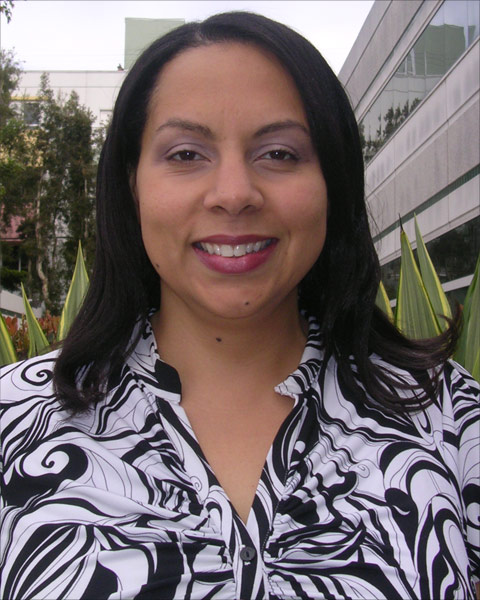
Desiree Crevecoeur-MacPhail
PhD
Desirée A. Crèvecoeur-MacPhail, Ph.D. received her doctorate from Claremont Graduate University in social psychology and master's degree in clinical psychology from Pepperdine University. She has worked in program evaluation for almost 20 years with various institutions examining areas as diverse as substance use disorder treatment, “housing first” programs, anti-hate violence/anti-discrimination educational interventions in high schools and student satisfaction with graduate school. She has worked at the University of California Los Angeles (UCLA) Integrated Substance Abuse Programs (ISAP) as a project director and research psychologist for over 15 years and is currently the Principal Investigator of the Los Angeles County Evaluation System: An Outcomes Reporting Program examining treatment engagement, retention and performance management. Dr. Crèvecoeur-MacPhail has worked with OPCC (formerly Ocean Park Community Center) as an external evaluator for several years. She is the author of over 24 papers and book chapters on topics including the treatment system in Los Angeles County, the impact of substance withdrawal on the body, how addiction affects the brain, addiction medications, the increase in use of methamphetamine for American Indians and Latinos, substance use disorder treatment effectiveness, health disparities, and program evaluation. She works with federally qualified health centers (FQHCs) to assess and improve treatment integration. She has extensive experience in health research, including quantitative and qualitative methods and outcomes measurement. In addition to her research, Dr. Crèvecoeur-MacPhail has taught at a number of colleges and universities including UCLA, California State University Dominguez Hills, Chapman University and Claremont Graduate University.-
Register
- Regular Member - $21
- Retired - $21
- Early Career Physician - $21
- Resident - $16
- Student - $16
- Associate - $16
- ASAM Staff - Free!
- Non-Member - $27
- International Member - $21
- Emeritus Member - $21
- Provisional Member - $21
- Fellow Member - $21
- Honorary Member - $21
- CRT Member - $21
- More Information
-
Register
- Contains 3 Component(s), Includes Credits
Component Credit Type State/Medical Type Available Credits Earned Credits CME Credit Medical Physician 1.00 0.00 CME Credit Medical Non-Physician 1.00 0.00 Despite over 10 years of office-based treatment for opioid dependence, the optimal dose for buprenorphine therapy is still not known. In this focus session we will review existing evidence from the literature about the relationship between buprenorphine dose and treatment outcomes. We will then share results from our recent study that specifically addressed this question. We will then conclude with a discussion about optimal buprenorphine dosing for outpatient practice and methods for studying it.
Focus Session Proposal:
Office-based treatment for opioid dependence with buprenorphine has expanded access to treatment for individuals with opioid use disorders and has proven to be effective in a variety of settings. However, despite over 10 years of experience, there are still questions about the optimal dose for buprenorphine treatment. In this focus session, we will review existing evidence from the literature about the relationship between buprenorphine dose and physiologic measures and patient outcomes. Early studies suggested that doses of 8 to 16 mg per day of the the sublingual formulation should be sufficient and some insurers have limited access to doses higher that 16 mg/day as a result. Some guidelines have discouraged use of doses higher than 16 mg/day. However, there is growing clinical data that suggests that higher doses may lead to improved treatment retention and outcomes. This includes a recent study that we have conducted that specifically addressed this question. ¨The focus session with then conclude with an opportunity for discussion about optimal buprenorphine dosing for outpatient practice and methods for studying it. In this discussion, the relative risks and benefits of dose limits will be considered. Tension may exist between the goal of increasing treatment retention and the goal of minimizing drug diversion and cost, and these factors will be considered.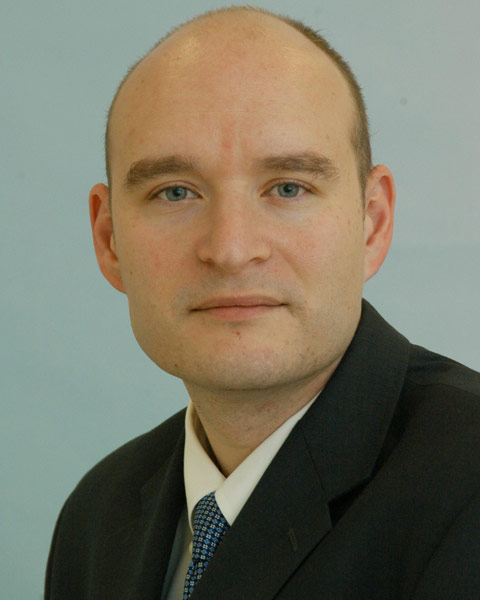
Anthony J. Accurso, MD
Assistant Professor of Medicine
Anthony Accurso, MD, grew up in New York City and attended Hunter College High School. He received his B.A. with honors in Biology from Dartmouth College in 1999. He taught high school science for six years before enrolling in medical school. He completed medical school at SUNY Downstate, in Brooklyn NY in 2010. He completed his residency in Internal Medicine at Johns Hopkins Bayview in 2013, and then joined the faculty there. He is currently an Assistant Professor of Medicine in the Division of Chemical Dependence. He is an ASAM member and passed the Addiction Medicine board exam in October 2015. He is also the faculty director of Providers for Responsible Ordering, a group that promotes high-value care.

Darius Rastegar, MD, FASAM
Associate Professor
Dr. Rastegar provides treatment for substance use disorders in an outpatient primary care setting and an inpatient unit. He is an Associate Professor of Medicine at Johns Hopkins University School of Medicine and is the medical director for the Chemical Dependence Unit at Johns Hopkins Bayview Medical Center. He is the co-author of The ASAM Handbook of Addiction Medicine.
-
Register
- Regular Member - $21
- Retired - $21
- Early Career Physician - $21
- Resident - $16
- Student - $16
- Associate - $16
- ASAM Staff - Free!
- Non-Member - $27
- International Member - $21
- Emeritus Member - $21
- Provisional Member - $21
- Fellow Member - $21
- Honorary Member - $21
- CRT Member - $21
- More Information
-
Register
- Contains 23 Component(s), Includes Credits
Treatment of Opioid Use Disorder: Waiver Qualifying - ACOG - Kansas City, MO - Sunday, July 15, 2018
Component Credit Type State/Medical Type Available Credits Earned Credits CME Certificate Medical Physician 8.00 0.00 CME Certificate Medical Non-Physician 8.00 0.00 The ASAM Treatment of Opioid Use Disorder Course: Includes Waiver Qualifying Requirements will ensure that participants are exposed to the highest quality, evidence-based practices when using buprenorphine to treat opioid use disorders.

Sunday, July 15, 2018 | 1:00 pm - 5:30 pm
Sheraton Kansas City at Crown Center
2345 McGee St
Kansas City, MO 64108
Click here to register for the course.
Cost: $75This course is offered in partnership with the American College of Obstetricians and Gynecologists. The curriculum for this course has been specifically designed for women's health providers.
Welcome to the ASAM Treatment of Opioid Use Disorder Course online access. This course covers all medications and treatments for opioid use disorder, and provides the required education needed to obtain the waiver to prescribe buprenorphine. ASAM is an approved provider by CSAT/SAMHSA of DATA 2000 training.
This is an 8-hour blended course combining 4 hours of online learning followed by 4 hours of live learning. The live portion of the course builds off the content delivered in the online portion. Course faculty are expecting you to come to the live course with the online portion completed.
Getting started: To begin the online portion of the course, please log in to your right and locate the box that says Module 1. If you do not know your password, or you have forgotten it, select Forgot Password and you will be emailed a link to reset your password. Detailed instructions for completing the online portion of the course can be found under the tab titled Course Instructions.
Once you have completed the 4-hour online portion and the 4-hour live portion of the course, return here to claim CME for the course. If you have any questions, please contact education@ASAM.org.
Overview of Legislation
Physicians
The Drug Abuse Treatment Act of 2000 (DATA 2000) specifies training is necessary for physicians to obtain a waiver to engage in office‐based treatment of opioid use disorders using drugs approved by the FDA on Schedules III, IV, and V. This course addresses those requirements using a curriculum approved by CSAT/SAMHSA and ASAM, who is one of the national organizations named in the DATA 2000 legislation as eligible to prepare and administer these courses.
Nurse Practitioners & Physician Assistants
On July 22, 2016, President Obama signed the Comprehensive Addiction and Recovery Act (CARA) into law. CARA authorizes qualified NPs and PAs to become waivered to prescribe buprenorphine in office-based settings for patients with Opioid Use Disorder (OUD) for a five-year period expiring in October 2021.
To qualify, NPs and PAs must:
- Be licensed under state law to prescribe schedule III, IV, or V medications for pain
- Complete not less than 24 hours of appropriate education through a qualified provider
- Through other training or experience, demonstrate the ability to treat and manage OUD
- If required by state law, be supervised or work in collaboration with a qualifying physician to prescribe medications for the treatment of OUD
HHS' announcement on November 16, 2016, enables NPs and PAs to immediately begin taking the 24 hours of required training. For the full HHS announcement, click here.
NPs and PAs can begin the training immediately by taking the 8-hour buprenorphine course ASAM currently offers or that other stakeholders offer (see below for more information). The remaining 16 hours will have to be completed with one training provider. ASAM is developing multiple 16-hour training course options and formats, including collaborations with:
- 24-Hour Buprenorphine Curriculum Collaborative with the American Association of Nurse Practitioners (AANP) and the American Academy of Physician Assistants (AAPA)
- Clinical Tools, Inc
- Provider's Clinical Support System for Medication-Assisted Treatment (PCSS-MAT)
Apply
- Fill out the Waiver Notification Form on SAMHSA’s website.
- Submit copies of your training certificate(s) to SAMHSA by email: infobuprenorphine@samhsa.hhs.gov or fax: 301.576.5237.
SAMHSA reviews waiver applications within 45 business days of receipt. If approved, you will receive a letter via email that confirms your waiver and includes your prescribing identification number.
Waiver applications are forwarded to the DEA. DEA regulations require your prescribing identification number to be included on all buprenorphine prescriptions for opioid dependency treatment, along with your regular DEA number.
If you have not received confirmation of receipt of your application, or if it has been more than 45 business days since submitting it, contact CSAT by email: infobuprenorphine@samhsa.hhs.gov or call 866.287.2728.
Please ensure that your state regulations allow you to prescribe buprenorphine and other medications to treat OUD before you apply for the waiver. Some states may have overriding state legislation that will prevent NPs and PAs from prescribing these medications even if Federal law allows it.
Apply
- Fill out the Waiver Notification Form on SAMHSA’s website.
- Submit copies of your training certificate(s) to SAMHSA by email: infobuprenorphine@samhsa.hhs.gov or fax: 301.576.5237.
SAMHSA reviews waiver applications within 45 business days of receipt. If approved, you will receive a letter via email that confirms your waiver and includes your prescribing identification number.
Waiver applications are forwarded to the DEA. DEA regulations require your prescribing identification number to be included on all buprenorphine prescriptions for opioid dependency treatment, along with your regular DEA number.
If you have not received confirmation of receipt of your application, or if it has been more than 45 business days since submitting it, contact CSAT by email: infobuprenorphine@samhsa.hhs.gov or call 866.287.2728.
Qualify
To qualify for a waiver to treat patients with Opioid Use Disorder, NPs and PAs must:
- Be licensed under state law to prescribe schedule III, IV, or V medications for pain
- Complete no less than 24 hours of appropriate education through a qualified provider
- Through other training or experience, demonstrate the ability to treat and manage OUD
- If required by state law, supervision or working in collaboration with a qualifying physician to prescribe medications for the treatment of OUD may be required.
CME Information and Disclosure Listing
Date of Release: July 2015
Approved Through: July 2018The American Society of Addiction Medicine (ASAM) is accredited by the Accreditation Council for Continuing Medical Education (ACCME) to provide continuing medical education for physicians.
The American Society of Addiction Medicine designates this enduring material for a maximum of 4 AMA PRA Category 1 Credits™. Physicians should claim only credit commensurate with the extent of their participation in the activity.
The American Society of Addiction Medicine designates this live activity for a maximum of 4 AMA PRA Category 1 Credits™. Physicians should claim only credit commensurate with the extent of their participation in the activity.
The combined online enduring material and live activity will provide the required 8 hours needed to obtain the waiver to prescribe buprenorphine in office-based treatment of opioid use disorders.
This course has been designated as an approved CME Activity by the American Board of Addiction Medicine (ABAM). Physicians enrolled in the ABAM Maintenance of Certification (MOC) Program can apply a maximum of 8 AMA PRA Category 1 Credit(s)™ to the CME requirement for Part II: Lifelong Learning and Self-Assessment.
In accordance with the disclosure policies of ASAM and the ACCME, the effort is made to ensure balance, independence, objectivity, and scientific rigor in all educational activities. These policies include resolving all conflicts of interest between the CME Committee, Planning Committee and faculty, and commercial interests that might otherwise compromise the goal and educational integrity of this activity. All CME Committee, Planning Committee and faculty participating in the activity have disclosed all relevant financial relationships with commercial interests. The CME Committee has reviewed these disclosures and determined that the planning committee and faculty relationships are not inappropriate in the content of their respective presentations and are not inconsistent with the educational goals and integrity of the activity.
ASAM CME Committee
Name
Nature of Relevant Financial Relationship
Commercial Interest
What was received?
For what role?
Catherine R. Friedman, MD, FASAM Chair
None
Edwin A. Salsitz, MD, FASAM
None
Herbert Malinoff, MD, FACP, FASAM
None
Noel Ilogu, MD, MRCP
None
Abigail Kay, MD
None
John Tanner, DO, FASAM
Reckitt Benckiser
OREXO
BDSI
Honorarium
Honorarium
Honorarium
Speaker
Speaker
Speaker and Consultant
Catherine Friedman, MD
None
ASAM Buprenorphine Program Planning Committee
Name
Nature of Relevant Financial Relationship
Commercial Interest
What was received?
For what role?
Dan Alford, MD, MPH
None
Andrew J. Saxon, MD
UpToDate
Royalties
Section Editor, Drug Use Disorders
Colleen LaBelle, BSN, RN-BC, CARN
None
Edwin Salsitz, MD, FASAM
None
Jeffrey D. Baxter, MD
None
Kelley Saia, MD
None
Sharon Levy, MD, MPH
None
Paula J. Lum, MD, MPH
None
ASAM Buprenorphine Course FacultyName
Nature of Relevant Financial Relationship
Commercial Interest
What was received?
For what role?
Edwin Salsitz, MD, FASAM
None
Andrew J. Saxon, MD
UpToDate
Royalties
Senior Editor, Drug Use Disorders
Colleen LaBelle, BSN, RN-BC, CARN
None
Dan A. Alford, MD, MPH
None
Jeffrey D. Baxter, MD
None
Kelley Saia, MD
None
Sharon Levy, MD, MPH
None
Paula J. Lum, MD, MPH
None
Sarah Bagley, MD
ASAM Millennium Fellowship Award
Partial Salary Support
Awardee
Alexander Y. Walley, MD, MSc
None
ASAM CME Committee Reviewers
Name
Nature of Relevant Financial Relationship
Commercial Interest
What was received?
For what role?
Adam J. Gordon, MD, MPH, FACP, FASAM
None
Herbert Malinoff, MD, FACP, FASAM
None
Learners will be able to:
- Apply for a waiver to prescribe buprenorphine to their patients with opioid use disorders
- Identify and assess patients who are appropriate for treatment with medications
- Have specific knowledge concerning the use of medications to manage patients with addiction involving opioid use
- Discuss the psychiatric and medical co-morbidities associated with opioid addiction
- Locate the box on the right that says “Module 1" and click “View Web Content On-Demand"
- Locate the box on the right that says “Certificate code" and enter the code given upon completion of Module 1 Part 1
- Continue to Module 1 Part 2 and Module 1 Part 3
- Once you have completed the entire module, locate the box called “Module 1 Quiz" and choose “Take Quiz"
- After you have completed Module 1 Quiz, continue to modules 2 and 3
- You will be required to pass all 3 Module Quizzes with a grade of 70% or higher
- Upon completion of both the 4 online hours and 4 live hours of the course, you will be able to claim CME Credit through the ASAM e-Learning Center
- Physicians, Nurse Practitioners, and Physician Assistants who wish to obtain a waiver to prescribe buprenorphine in office based treatment of opioid use disorders.
- Clinicians and health care team members working with physicians who prescribe buprenorphine in office based treatment of opioid use disorders.
The ASAM Treatment of Opioid Use Disorder Course has been made available in part by an unrestricted educational grant from Indivior Inc.
-
Register
- Non-Member - Free!
- Regular Member - Free!
- Retired - Free!
- Early Career Physician - Free!
- Resident - Free!
- Student - Free!
- Associate - Free!
- ASAM Staff - Free!
- International Member - Free!
- Emeritus Member - Free!
- Provisional Member - Free!
- Fellow Member - Free!
- Honorary Member - Free!
- CRT Member - Free!
- More Information
| Access Date | Quiz Result | Score | Actions |
|---|







